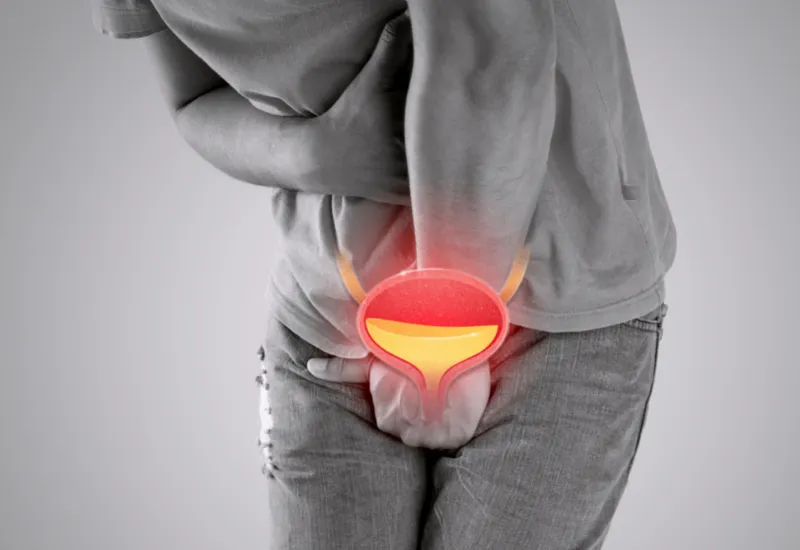Revaree Side Effects: What You Need to Know?
Vaginal dryness is a common issue that affects millions of women, particularly during and after menopause, postpartum, or as a result of medical treatments such as chemotherapy or hormone-blocking therapies. This condition can cause discomfort, pain during intimacy, irritation, and a reduced quality of life. For many years, the primary solution was hormone-based treatments, such as vaginal estrogen creams, tablets, or rings.
However, not all women are candidates for hormonal therapy. Some prefer to avoid it due to personal concerns, while others are advised against it because of medical conditions like breast cancer or blood clotting disorders. This is where Revaree comes in—a hormone-free vaginal insert made with hyaluronic acid (HA) that provides natural hydration and tissue restoration.
Revaree is considered safe, effective, and well-tolerated, but like any product, it may cause side effects in some users. Understanding these side effects, their likelihood, and how to manage them is essential if you’re considering or already using Revaree.
In this article, we’ll explore everything you need to know about Revaree side effects, how it compares to hormonal therapies, and when you should seek medical advice.
What is Revaree and How Does It Work?
Revaree is a small, vaginal insert designed to deliver hyaluronic acid (HA) directly into the vaginal tissues. Hyaluronic acid is a naturally occurring molecule in the human body that plays a crucial role in hydration, elasticity, and tissue repair. It works like a sponge, attracting and retaining water to keep tissues moist and healthy.
When applied vaginally, hyaluronic acid helps restore the natural moisture balance, alleviates dryness, and promotes tissue repair. Unlike lubricants, which provide only temporary relief during intimacy, Revaree works at a deeper level by improving the health of the vaginal tissues over time.
The recommended usage is typically one insert every two to three days, though some women may adjust frequency based on their doctor’s guidance.
Common Side Effects of Revaree

1. Mild Vaginal Irritation or Itching

2. Increased Vaginal Discharge

3. Mild Burning or Stinging Sensation
Less Common Side Effects
While uncommon, some women may experience side effects that warrant more attention:

Allergic Reactions (Rare)
- Stop using the product immediately if you notice any signs of an allergic reaction.
- Consult a healthcare professional to identify the cause of your symptoms and discuss alternative treatments.

UTI-Like Symptoms (Rare)
- Ensure proper hygiene during application to minimize the risk of introducing bacteria.
- Drink plenty of water and monitor symptoms closely.
- If you experience persistent urinary symptoms, such as pain during urination or frequent urges, consult a doctor to rule out a UTI.
Rare and Serious Side Effects
Serious side effects from Revaree are very rare. However, you should stop using the product and contact your healthcare provider if you experience:
- Severe vaginal pain or burning that does not improve
- Heavy or unusual vaginal bleeding
- Signs of infection (fever, foul-smelling discharge, or severe irritation)
- Signs of a severe allergic reaction
Revaree vs. Hormonal Therapies: Side Effect Comparison
One of Revaree’s biggest advantages is that it is hormone-free. Traditional vaginal dryness treatments often involve estrogen, which can be very effective but also comes with systemic risks for some women.
Here’s how Revaree compares:
| Feature | Revaree (Hyaluronic Acid) | Vaginal Estrogen (Creams, Rings, Tablets) |
|---|---|---|
| Contains hormones? | No | Yes |
| Systemic absorption | None | Small, but possible |
| Suitability for breast cancer survivors | Yes | Often not recommended |
| Common side effects | Mild irritation, discharge | Breast tenderness, spotting, bloating |
| Risk of serious effects | Extremely rare | Increased risk of blood clots (with systemic use), breast cancer concerns |
Because Revaree avoids systemic estrogen exposure, it is a safer alternative for women who cannot or prefer not to use hormones.
Who Should (and Shouldn’t) Use Revaree
Ideal Candidates
- Women experiencing menopausal or perimenopausal vaginal dryness
- Postpartum women dealing with dryness and discomfort
- Breast cancer survivors or women on anti-estrogen therapy
- Women seeking a natural, non-hormonal alternative
- Those who experienced side effects with estrogen therapy
Caution or Avoidance
- Women with known allergies to hyaluronic acid
- Women with unexplained vaginal bleeding (should consult a doctor first)
- Pregnant or breastfeeding women (safety data is limited—consult a healthcare provider)
- Women with active vaginal infections (should be treated before starting use)
Tips for Minimizing Side Effects
If you’re concerned about side effects, here are some practical steps:
- Use as directed – typically one insert every two to three days. Overuse can increase irritation.
- Insert gently – if tissues are fragile, use a water-based lubricant to ease insertion.
- Stay consistent – regular use helps tissues stay hydrated and reduces irritation over time.
- Monitor changes – keep track of discharge, spotting, or discomfort to share with your doctor if needed.
- Combine with healthy habits – stay hydrated, maintain a balanced diet, and consider pelvic floor exercises to support vaginal health.
Click here to buy Revaree
When to Contact Your Doctor
Most side effects of Revaree are mild and self-limiting. However, you should consult your healthcare provider if you experience:
- Persistent or worsening pain, burning, or itching
- Heavy or unusual vaginal bleeding
- Discharge with a foul odor, greenish/yellow color, or accompanied by fever
- Signs of a possible allergic reaction
Your doctor may recommend discontinuing use or exploring alternative treatments if side effects are persistent.
Frequently Asked Questions (FAQs)
1. Is Revaree safe for long-term use?
2. How soon will I notice results?
3. Can Revaree be used with lubricants or moisturizers?
4. Does Revaree affect sexual activity?
5. Can I use Revaree if I’m on other medications?
Conclusion
Revaree offers a safe, hormone-free solution for women struggling with vaginal dryness. Its active ingredient, hyaluronic acid, naturally hydrates and repairs vaginal tissues, improving comfort and quality of life. While side effects are possible, they are generally mild, temporary, and far less concerning than those associated with hormone-based therapies.
Most women can use Revaree without any major issues, but it’s important to monitor how your body responds. If you experience persistent irritation, unusual bleeding, or signs of infection, consult your healthcare provider.
Bottom line: For women seeking an effective, non-hormonal alternative to estrogen therapy, Revaree is a reliable option with an excellent safety profile.








